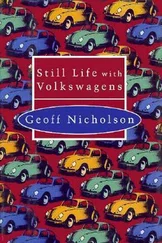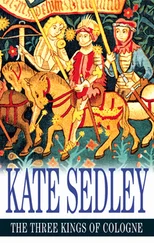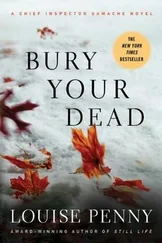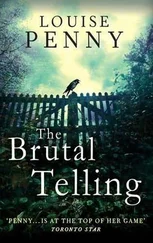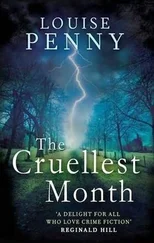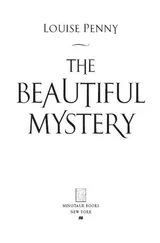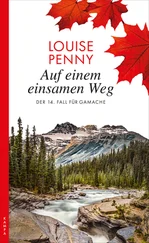Louise Penny - Still Life (Three Pines Mysteries)
Здесь есть возможность читать онлайн «Louise Penny - Still Life (Three Pines Mysteries)» весь текст электронной книги совершенно бесплатно (целиком полную версию без сокращений). В некоторых случаях можно слушать аудио, скачать через торрент в формате fb2 и присутствует краткое содержание. Жанр: Старинная литература, на английском языке. Описание произведения, (предисловие) а так же отзывы посетителей доступны на портале библиотеки ЛибКат.
- Название:Still Life (Three Pines Mysteries)
- Автор:
- Жанр:
- Год:неизвестен
- ISBN:нет данных
- Рейтинг книги:4 / 5. Голосов: 1
-
Избранное:Добавить в избранное
- Отзывы:
-
Ваша оценка:
- 80
- 1
- 2
- 3
- 4
- 5
Still Life (Three Pines Mysteries): краткое содержание, описание и аннотация
Предлагаем к чтению аннотацию, описание, краткое содержание или предисловие (зависит от того, что написал сам автор книги «Still Life (Three Pines Mysteries)»). Если вы не нашли необходимую информацию о книге — напишите в комментариях, мы постараемся отыскать её.
Still Life (Three Pines Mysteries) — читать онлайн бесплатно полную книгу (весь текст) целиком
Ниже представлен текст книги, разбитый по страницам. Система сохранения места последней прочитанной страницы, позволяет с удобством читать онлайн бесплатно книгу «Still Life (Three Pines Mysteries)», без необходимости каждый раз заново искать на чём Вы остановились. Поставьте закладку, и сможете в любой момент перейти на страницу, на которой закончили чтение.
Интервал:
Закладка:
‘Is it good?’ Beauvoir asked.
‘That’s the question. I don’t know. Peter thinks it’s brilliant, and the rest of the jury, with one exception, was willing to risk it.’
‘What risk?’
‘This might surprise you, but artists are temperamental so-and-sos. For Jane’s work to be accepted and shown, someone else’s had to be rejected. That someone will be angry. As will his relatives and friends.’
‘Angry enough to kill?’ Beauvoir asked.
Clara laughed. ‘I can absolutely guarantee you the thought has crossed and even lodged in all our artistic brains at one time or another. But to kill because your work was rejected at Arts Williamsburg? No. Besides, if you did, it would be the jury you’d murder, not Jane. And, come to think of it, no one except the jury knew this work had been accepted. We’d only done the judging last Friday.’ It seems so long ago now, thought Clara.
‘Even Miss Neal?’
‘Well, I told Jane on Friday.’
‘Did anyone else know?’
Now Clara was getting a little embarrassed. ‘We talked about it over dinner that night. It was a sort of pre-Thanksgiving dinner with our friends at our place.’
‘Who was at the dinner?’ Beauvoir asked, his notepad out. He no longer trusted Nichol to take proper notes. Nichol saw this and resented it almost as much as she’d resented it when they’d asked her to take notes. Clara ran down the list of names.
Gamache, meanwhile, was staring at the picture.
‘What’s it of?’
‘The closing parade at the county fair this year. There,’ and Clara pointed to a green-faced goat with a shepherd’s crook, ‘that’s Ruth.’
‘By God, it is,’ said Gamache, to Beauvoir’s roar of laughter. It was perfect. He must have been blind to miss it. ‘But wait,’ Gamache’s delight suddenly disappeared, ‘this was painted the very day, at the very time, Timmer Hadley was dying.’
‘Yes.’
‘What does she call it?’
‘Fair Day.’
SIX
Even in the rain and wind Gamache could see how beautiful the countryside was. The maples had turned deep reds and oranges, and leaves blown down in the storm were spread along the road and gully like a tapestry. Their drive had taken them out of Williamsburg toward Three Pines, through the mountain range that separated the two. The road, like most sensible ones, followed the valleys and the river and was probably the old stagecoach route, until Beauvoir turned off on to an even smaller dirt road. Huge potholes jarred their car and Gamache could barely read his notes. He’d long since trained his stomach not to lurch with whatever vehicle he was in, but his eyes were proving more recalcitrant.
Beauvoir slowed down at a large metal mailbox painted sunny yellow. Hand printed in white was the number and the name, ‘Croft’. He turned in. The huge maples continued up the drive, creating a Tiffany tunnel.
Through the furious windscreen wiper Gamache saw a white clapboard farmhouse. The home had a comfortable, lived-in look. Tall, end-of-season sunflowers and hollyhocks leaned against it. Woodsmoke whispered out of the chimney to be grabbed away by the wind and taken home to the woods beyond.
Homes, Gamache knew, were a self-portrait. A person’s choice of color, furnishing, pictures. Every touch revealed the individual. God, or the Devil, was in the details. And so was the human. Was it dirty, messy, obsessively clean? Were the decorations chosen to impress, or were they a hodgepodge of personal history? Was the space cluttered or clear? He felt a thrill every time he entered a home during an investigation. He was desperate to get into Jane Neal’s home, but that would have to wait. For now the Crofts were about to reveal themselves.
Gamache turned to look at Nichol. ‘Keep your eyes open and take detailed notes of what’s being said. And just listen, got it?’
Nichol glared back.
‘I asked you a question, Agent.’
‘Got it.’ Then after a significant pause, she added, ‘Sir.’
‘Good. Inspector Beauvoir, will you take the lead?’
‘Right,’ replied Beauvoir, getting out of the car.
Matthew Croft was waiting at the screen door. After taking their sodden coats he led them straight into the kitchen. Bright reds and yellows. Cheery tableware and dishes in the hutch. Clean white curtains with flowers embroidered on the border. Gamache looked across the table at Croft who was straightening the rooster salt and pepper shakers. His clever eyes couldn’t seem to rest and he held himself as though waiting. Listening. It was all very subtle, hidden below the friendly exterior. But it was there, Gamache was sure of it.
‘I’ve got the archery set in the screen porch. It’s wet out, but if you’d still like a demonstration I could show you how they’re fired.’ Croft had said this to Gamache but Beauvoir answered, dragging Croft’s eyes away from his chief.
‘That would be very useful, but I have a few questions first, just some background I’d like to get straight.’
‘Sure, anything.’
‘Tell me about Jane Neal, your relationship with her.’
‘We weren’t that close. I’d sometimes go over to her place to visit. It was quiet. Peaceful. She was my teacher, long ago now, up at the old schoolhouse.’
‘What was she like as a teacher?’
‘Remarkable. She had this really amazing ability to look at you and make you feel you were the only person on earth. You know?’
Beauvoir knew. Armand Gamache had the same ability. Most people when talking are also watching the rest of the room, and nodding to others, waving. Never Gamache. When he looked at you, you were the universe. Though Beauvoir knew the boss was also taking in every detail of what was happening. He just didn’t show it.
‘What do you do for a living?’
‘I work for the township of St Rémy in the road department.’
‘Doing what?’
‘I’m the head of road maintenance. I assign crews, assess problem areas. Sometimes I just drive, looking for problems. Don’t want to find a problem at the same time as I find an overturned car.’
It happened far too often. Normally death came at night, taking a person in their sleep, stopping their heart or tickling them awake, leading them to the bathroom with a splitting headache before pouncing and flooding their brain with blood. It waits in alleys and metro stops. After the sun goes down plugs are pulled by white-clad guardians and death is invited into an antiseptic room.
But in the country death comes, uninvited, during the day. It takes fishermen in their longboats. It grabs children by the ankles as they swim. In winter it calls them down a slope too steep for their budding skills, and crosses their skies at the tips. It waits along the shore where snow met ice not long ago but now, unseen by sparkling eyes, a little water touches the shore, and the skater makes a circle slightly larger than intended. Death stands in the woods with a bow and arrow at dawn and dusk. And it tugs cars off the road in broad daylight, the tires spinning furiously on ice or snow, or bright autumn leaves.
Matthew Croft was always called to road accidents. Sometimes he was the first there. As he worked to free the body Matthew Croft’s bruised heart and brain would go home to poetry. He would recite poems learned by heart from books borrowed from Miss Neal. And Ruth Zardo’s poetry was his favorite.
On quiet days off he would often visit Miss Neal and sit in her garden in an Adirondack chair looking across the phlox to the stream beyond, and memorise poems, to be used to ward off the nightmares. As he memorised, Miss Neal would make pink lemonade and deadhead her perennial borders. She was aware of the irony of deadheading while he banished death from his head. For some reason Matthew was loath to tell the police about this, to let them that far in.
Читать дальшеИнтервал:
Закладка:
Похожие книги на «Still Life (Three Pines Mysteries)»
Представляем Вашему вниманию похожие книги на «Still Life (Three Pines Mysteries)» списком для выбора. Мы отобрали схожую по названию и смыслу литературу в надежде предоставить читателям больше вариантов отыскать новые, интересные, ещё непрочитанные произведения.
Обсуждение, отзывы о книге «Still Life (Three Pines Mysteries)» и просто собственные мнения читателей. Оставьте ваши комментарии, напишите, что Вы думаете о произведении, его смысле или главных героях. Укажите что конкретно понравилось, а что нет, и почему Вы так считаете.

